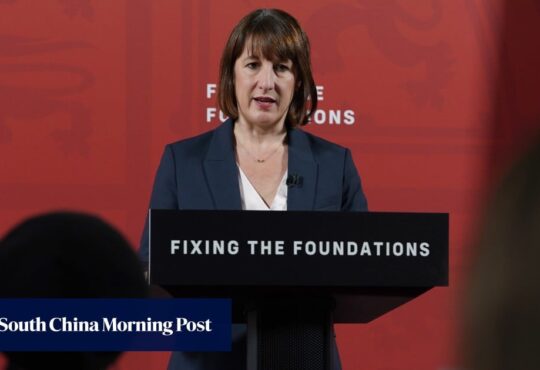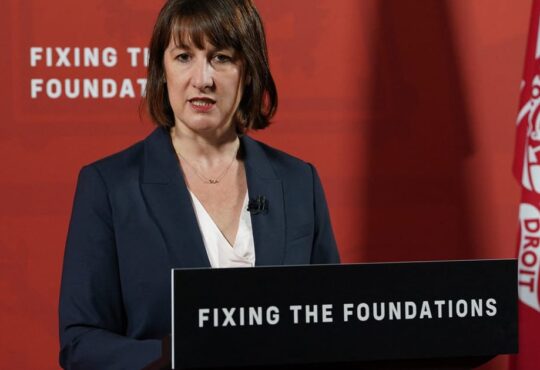
A new death levy being considered by the Government could cost grieving widows and widowers an extra £13,000 in tax, Wealth & Personal Finance figures reveal.
Last month, HM Revenue & Customs published proposals to start taxing hundreds of thousands of inherited pension pots for the first time. The reforms would scrap the ability to inherit a pension pot tax free and could come into force as early as next April.
Anyone who earns at least £12,570 a year – the current personal allowance – could face a tax bill when inheriting a pension.
At present, modern defined contribution pensions – where individuals and their employers pay towards a nest egg – can be passed on free of inheritance tax. The person who inherits is also free to withdraw money from it without paying income tax, so long as the deceased died before the age of 75. If the deceased was over 75, the beneficiary pays income tax on any withdrawals.
The proposals would make all withdrawals subject to income tax – even on pensions passed on by someone under 75. Analysis for Wealth by financial adviser True Potential, which manages more than £25 billion in savings, finds that its clients who have previously inherited a pension would have paid an average of £13,693 in income tax last year if the new penalty had been in place.
However, this could climb to £30,809 if beneficiaries are pushed into an additional rate of tax as a result of inheriting a pension, it warns.
Of course, these technical changes would mean many incurring extra costs by requiring advice from pension experts.
In England, more than 170,000 people died before the age of 75 in 2019, according to the latest official figures.
Former Pensions Minister Sir Steve Webb, who is now a partner at consultancy LCP, says the changes were outlined as a small part of a wider consultation about pension reforms.
‘They are trying to smuggle the change through, but it would be totally unacceptable to make such a big change through the back door,’ he says. ‘If Ministers plan to remove this pension tax break they should announce such plans publicly and have them properly debated.’
Under the proposed new rules, up to 25 per cent of an inherited pension could be taken as a lump sum tax free, so long as it is under the permitted cap of £1,073,100. However, if the pension is left invested and drawn as an income, it would be taxed at the new owner’s income tax rate.
Steven Cameron, of pensions group Aegon, describes the Government’s plans as ‘bizarre’ and warns that they would encourage people to take lump sums from pensions – even if they don’t need to – rather than keep the proceeds invested to fund a regular income throughout retirement. ‘As soon as the money has been taken from the pension, it no longer benefits from tax advantaged investment growth,’ he says.
Related Articles
HOW THIS IS MONEY CAN HELP
Those who do take the money as a lump sum to avoid a large tax bill risk being unable to reinvest it into another pension. This is because there is a cap on the amount you can contribute to a pension each year, known as the annual allowance. You can pay in £60,000 or up to 100 per cent of your annual earnings – whichever is lower.
There is also a strong risk that beneficiaries will leave their money in an easy-access savings account where it would earn little interest and could one day be subject to inheritance tax.
Those who choose to take an income from the inherited pot would find their money chipped away at every year, leaving them poorer in retirement.
Someone who inherits £100,000 from a loved one who died at 75 or before could receive a guaranteed income in retirement of £5,000 if they chose to use it to purchase an annuity, according to Aegon.
At present, they would pay no tax on that income. But from next April, basic rate taxpayers would be forced to hand over £1,000 a year to the taxman while higher rate payers would be £2,000 out of pocket. Sir Steve says: ‘This isn’t a change targeted at fat cats’ fat pension pots. This change would affect anybody who inherits a pension and hit people with modest pensions.’
The rule change was proposed amid a wider consultation around pension pots that exceed £1 million. Earlier this year, Chancellor Jeremy Hunt announced plans to abolish the ‘lifetime allowance’, which caps the amount you can save into your pension without paying tax at £1,073,100.
Gary Smith, a financial planner at wealth manager Evelyn Partners, warns the tax rule could trigger larger inheritance tax bills. ‘It creates a dilemma for beneficiaries as, although the tax-free lump sum might seem attractive, they will need to consider if the lump sum will result in the value of their own estate becoming subject to inheritance tax on their own death, and tax at 40 per cent could be suffered,’ he says.
‘It will impact all pension savers regardless of the value of their pension funds, and we would encourage HMRC to clarify what could effectively be a stealth tax attack on pension pots.’
This comes as another knock to grieving families, with the inheritance tax take already soaring to a record high. HM Revenue & Customs raked in more than £7 billion from grieving families in the last tax year.
Our sister publication Money Mail revealed last week that more than 533,000 families face being caught in the inheritance tax net over the next decade. A Treasury source told Wealth: ‘This is not a done deal, the document published last month only outlines one suggested approach as to how lump sums could be taxed in the absence of the lifetime allowance.’
Some links in this article may be affiliate links. If you click on them we may earn a small commission. That helps us fund This Is Money, and keep it free to use. We do not write articles to promote products. We do not allow any commercial relationship to affect our editorial independence.






